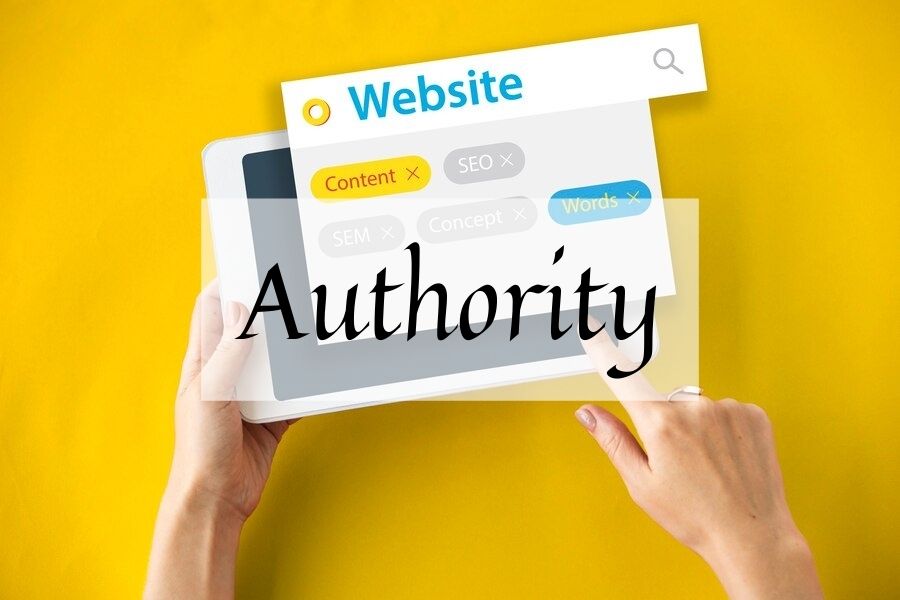What is Site Authority as it Relates to SEO?
Learn all about Site Authority and its crucial role in SEO. Discover the factors that contribute to Site Authority, its significance in search engine rankings, and effective strategies to boost your website's authority. Get ready to dominate the digital landscape!
Introduction
Welcome to the world of SEO, where everything seems to be wrapped in a shroud of mystery, algorithms, and jargon that can make your head spin. One of the crucial concepts in the realm of Search Engine Optimization is "Site Authority." You may have heard the term tossed around, but what does it really mean? How does it impact your website's performance on search engines like Google? Is it the secret sauce to conquering the search engine rankings? Well, you're in the right place to find out!
In this article, we'll unravel the enigmatic concept of Site Authority and its intricate relationship with SEO. We'll break it down into bite-sized pieces, delve into its significance, and equip you with the knowledge to enhance your website's performance in the digital landscape.
What is Site Authority?
Let's start at the beginning, shall we? Site Authority is an SEO term that refers to the credibility, trustworthiness, and influence a website holds within its niche or industry. In simpler terms, it's like the reputation of your website in the digital world. Just as a person with a stellar reputation tends to be trusted and respected, a website with high Site Authority is more likely to be favored by search engines and users.
So, what contributes to Site Authority?
Site Authority isn't a single-factor metric; it's a cocktail of various elements that blend together to form a website's overall authority. Here's what contributes to it:
-
Backlinks: These are like the digital votes of confidence. When other reputable websites link to your content, it indicates that your content is valuable and worth referring to.
-
Content Quality: High-quality, informative, and engaging content establishes your expertise in your niche. It keeps users engaged and coming back for more.
-
User Experience: A user-friendly, well-structured website enhances the overall user experience, which is appreciated by both visitors and search engines.
-
Relevance: If your content is relevant to the search queries of your target audience, it's more likely to be considered authoritative.
-
Social Signals: The engagement and shares your content receives on social media platforms can contribute to your Site Authority.
-
Technical SEO: Properly optimized websites with clean code and fast loading times are often viewed as more authoritative.
How is Site Authority measured?
Now, you might be wondering how on earth one measures this intangible concept of Site Authority. Well, it's not measured in a single, universally accepted number. Several tools provide metrics that gauge Site Authority. One of the most widely used metrics is the Domain Authority (DA) score by Moz. It ranks websites on a scale from 0 to 100, with higher scores indicating greater authority.
But remember, Site Authority can also be subject-specific. Your website might have high authority in one niche but not in another. So, it's important to consider the context and industry relevance.
The Significance of Site Authority in SEO
Okay, now that we've got a handle on what Site Authority is, let's delve into why it's so darn important in the world of SEO.
Search Engine Rankings
The first and foremost significance of Site Authority is its direct impact on your website's search engine rankings. Search engines like Google want to provide their users with the most relevant and trustworthy results. Websites with high Site Authority are perceived as more trustworthy, so they tend to rank higher in search results.
Think of it as a popularity contest, but instead of high school, it's the internet! Websites with high authority are like the cool kids who get invited to all the best parties (or, in this case, search results).
Trust and Credibility
In the digital realm, trust and credibility are priceless. Site Authority is like the golden ticket that gets you through the gate. Users are more likely to trust and engage with websites that have high authority. It's human nature to gravitate towards what others vouch for.
Imagine you're looking for medical advice online. Are you more likely to trust a random blog or an established healthcare website with a high Site Authority? Chances are, you'd opt for the latter. That's the power of trust in the digital world.
Competitive Edge
In a world where countless websites are vying for the same audience, Site Authority can give you a significant competitive edge. It's like having extra gear in a race; it propels you forward. When you have higher authority than your competitors, you're more likely to attract visitors, earn backlinks, and outrank them in search results.
Attracting Quality Backlinks
Remember how we mentioned backlinks as a contributor to Site Authority? Well, here's the catch: websites with higher authority find it easier to attract quality backlinks. Other websites are more inclined to link to your content when they see you as an authoritative source. This, in turn, further boosts your authority, creating a virtuous cycle.
Building Site Authority
Now that we've established the importance of Site Authority, you're probably itching to know how to build it for your own website. Fortunately, it's not an insurmountable task. Here are some strategies to help you boost your Site Authority:
1. Create High-Quality Content
Content is king in the digital realm. Craft informative, engaging, and valuable content that resonates with your target audience. The better your content, the more likely it is to be shared and linked to by others.
2. Guest Posting
Collaborate with other reputable websites in your niche to create guest posts. When your content appears on authoritative websites, it not only exposes your brand to a wider audience but also earns you valuable backlinks.
3. Optimize Your On-Page SEO
Ensure that your website is technically sound, with fast loading times, mobile responsiveness, and clean code. Proper on-page optimization is the foundation of building Site Authority.
4. Build a Network
Networking isn't just for in-person events; it's crucial in the digital space too. Connect with influencers and authorities in your niche. When they acknowledge your work, it can significantly boost your Site Authority.
5. Social Media Engagement
Don't underestimate the power of social media. Active engagement and sharing of your content on platforms like Facebook, Twitter, and LinkedIn can contribute to your Site Authority.
6. Monitor Your Backlink Profile
Keep an eye on the websites that link to your content. Ensure that they are relevant and of good quality. Disavow any spammy or harmful backlinks that could negatively impact your Site Authority.
Conclusion
In the vast universe of SEO, Site Authority is like a guiding star that can lead your website to digital success. It's the reputation, trust, and influence that set you apart from the digital noise. As you've learned, it plays a pivotal role in search engine rankings, trust-building, and staying ahead of the competition.
So, what is Site Authority as it relates to SEO? It's the force that propels your website to new heights in the digital realm. By creating high-quality content, engaging with your audience, and employing effective SEO strategies, you can gradually build and strengthen your Site Authority. It's a journey that requires dedication and patience, but the rewards are well worth the effort. So, get out there and start building your website's authority today, and soon enough, you'll be the cool kid at the digital party!
Share This Post
Related Articles
B2B Marketing: Winning Strategies for Business Growth
Unlock the secrets to B2B marketing success with winning strategies that drive business growth. Learn data-driven decision-making, content marketing, SEO, and more!
Paid Perfection: Mastering the Art of Managing Paid Advertising Campaigns
Unlock the secrets to successful digital marketing with this comprehensive guide on managing paid advertising campaigns effectively. From strategy development to performance measurement, learn how to optimize your paid media efforts for maximum impact!
What is a Video Podcast and How Does It Work?
A video podcast is a type of digital media that combines audio and video content. It can be downloaded or streamed online and played on various devices, such as computers, smartphones, tablets, or smart TVs. Video podcasts are similar to regular podcasts, but they offer more visual information and engagement for the viewers. Some video podcasts are recorded live, while others are edited and produced before being released.
What is Affiliate Marketing?
Affiliate marketing is a form of online marketing that involves promoting products or services of other companies and earning commissions for each sale or action. Affiliate marketers use various strategies such as blogging, social media, email marketing, SEO, and paid advertising to reach their target audience and persuade them to buy or sign up for the offers they recommend. Affiliate marketing can be a lucrative and flexible way to make money online, but it also requires dedication, research, and ethical practices.
What is a Strategy in Digital Marketing?
Strategy in digital marketing is the process of planning, implementing, and evaluating online campaigns that aim to achieve specific business goals. A good strategy should be based on a clear understanding of the target audience, the competitive landscape, the available resources, and the desired outcomes. A strategy should also be flexible and adaptable to changing market conditions and customer feedback.
Related FAQ
No related FAQ.
Say Hello
To Your Dream





